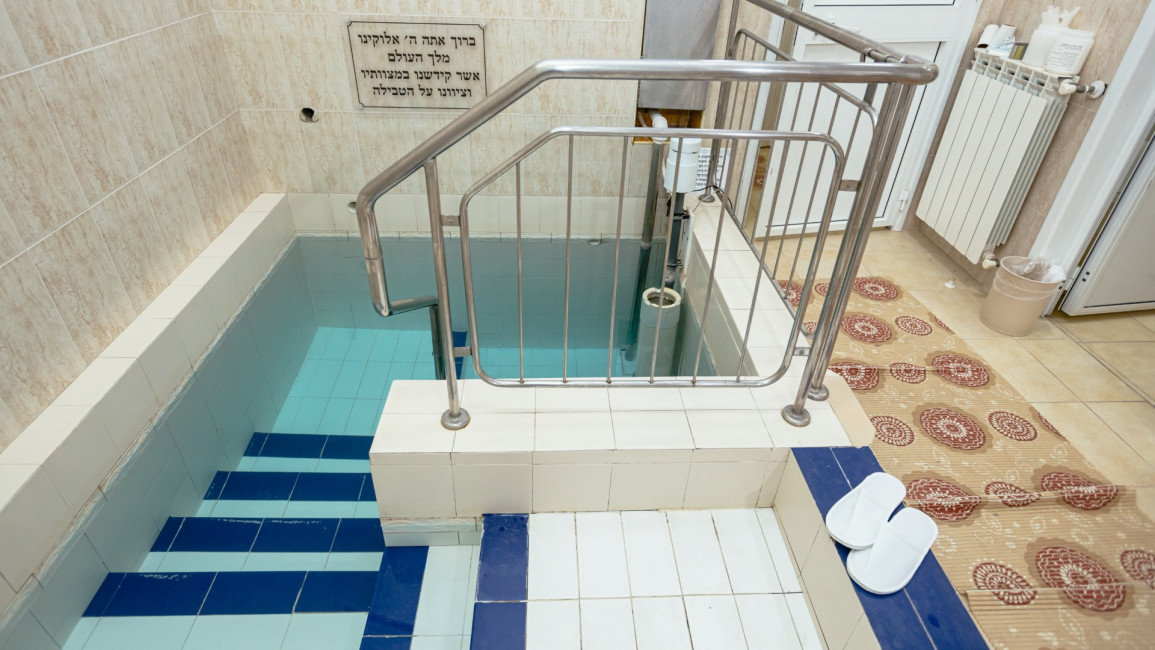Israel classifies 700 women’s ritual baths as 'essential' despite coronavirus concerns
The government has closed public spaces in an effort to stop the spread of Covid-19 and kept only "essential" places open.
This includes ritual baths, or "mikvahs", joining supermarkets and pharmacies on the list of public places that will be permitted to open their doors.
Jewish women use mikvahs to wash and purify themselves every month after their menstrual cycle ends.
Without washing oneself in a mikvah, which is a small pool at a specific time in a Jewish woman's menstrual cycle, they are forbidden to have physical contact with their husband, according to some followers.
Earlier this month, Prime Minister Benjamin Netanyahu issued a directive to lockdown the country over the Passover period, and enacted a curfew to prevent families from visiting one another during the festival, in a bid to curb the spreading of the virus.
|
In mid-March, emergency measures were imposed, closing shops, restaurants, gyms, ritual baths for men, as well as synagogues
At this time, the women mikvahs had remained open.
"I deliberated for a long time about whether I should even go. I thought about waiting until after this crisis was over," a Jerusalem resident called Esther told The Washington Post.
"But the truth is, I am a woman and my husband a man; we need to be together. Without the mikvah, we would not be able to be intimate, and that would make this difficult time even more stressful and lonely."
The Israeli government have issued safety guidelines including women registering in advance, while chlorine levels are measured every two to three immersions.
So far, there are no reported cases of women becoming infected at a mikvah in Israel, according to Mitchell Schwaber, director of the National Centre for Infection Control.
Israel has reported more than 15,000 confirmed coronavirus cases, including a relatively low death toll of 202 as of Sunday.
Earlier this week Israel's Shin Bet domestic security agency was ordered to halt its use of mobile phone tracking in the fight against the spread of the novel coronavirus amid privacy fears.
Israel's top court also ruled that the government must seek permission to track the phones of journalists infected with Covid-19, citing freedom of the press.



